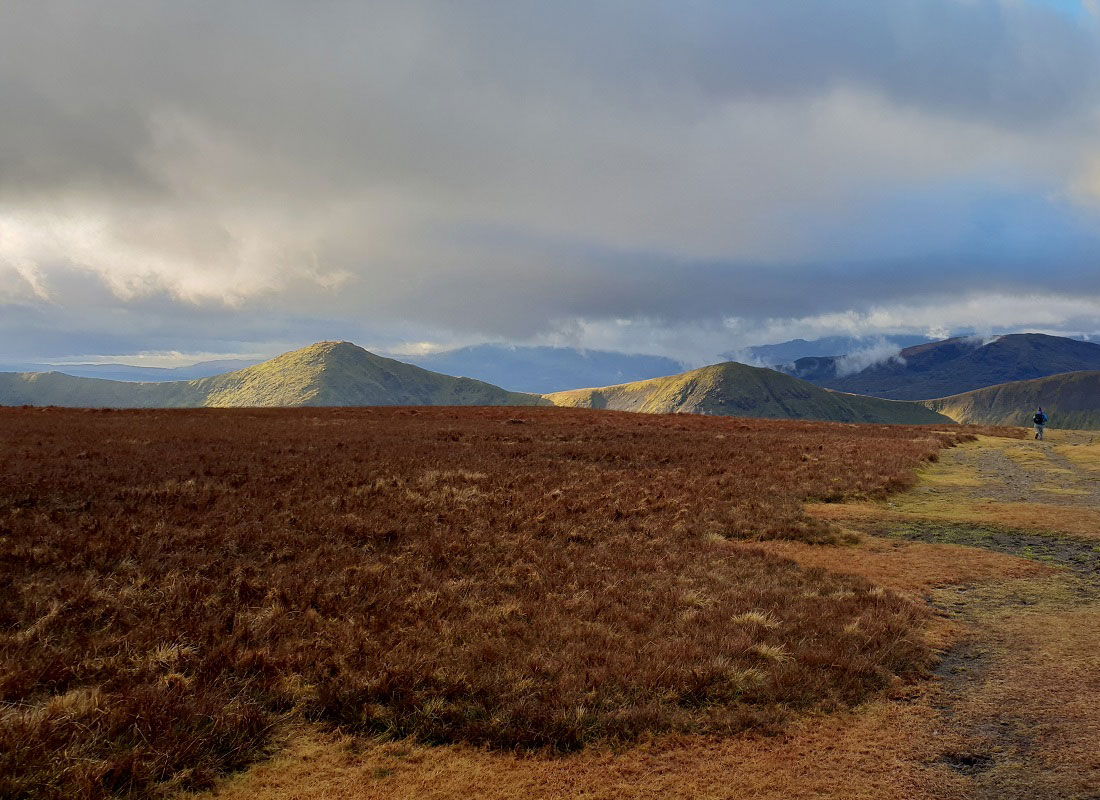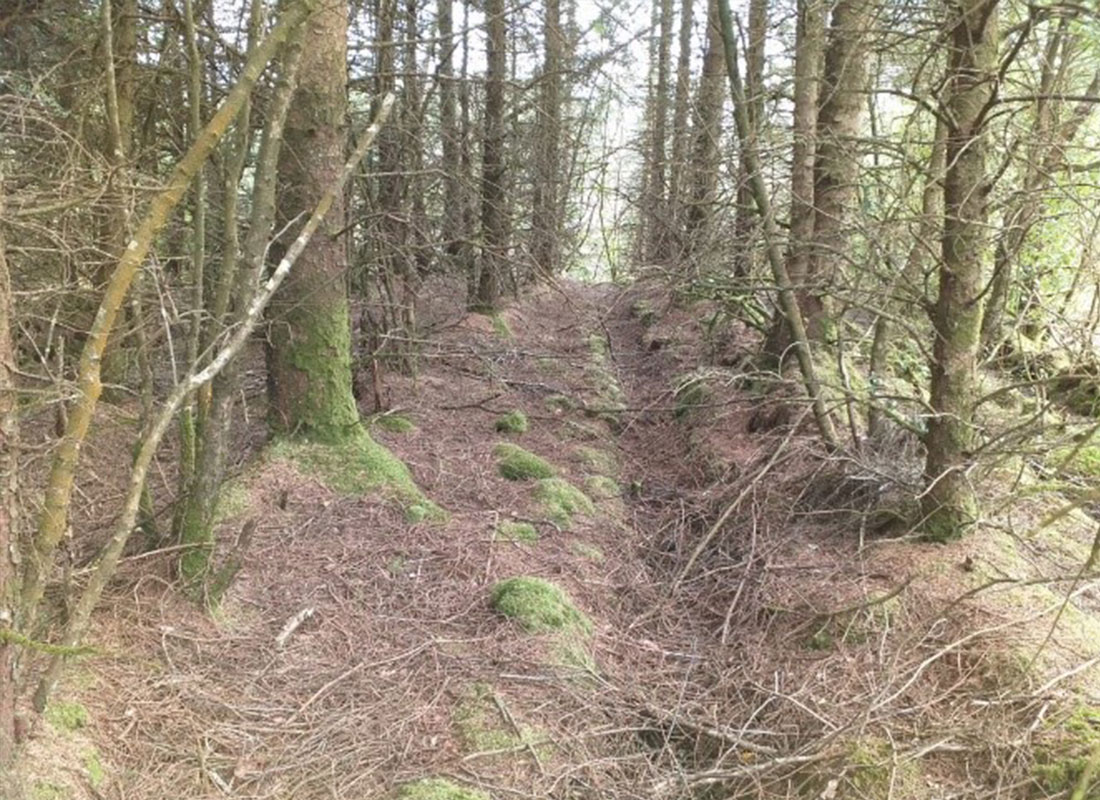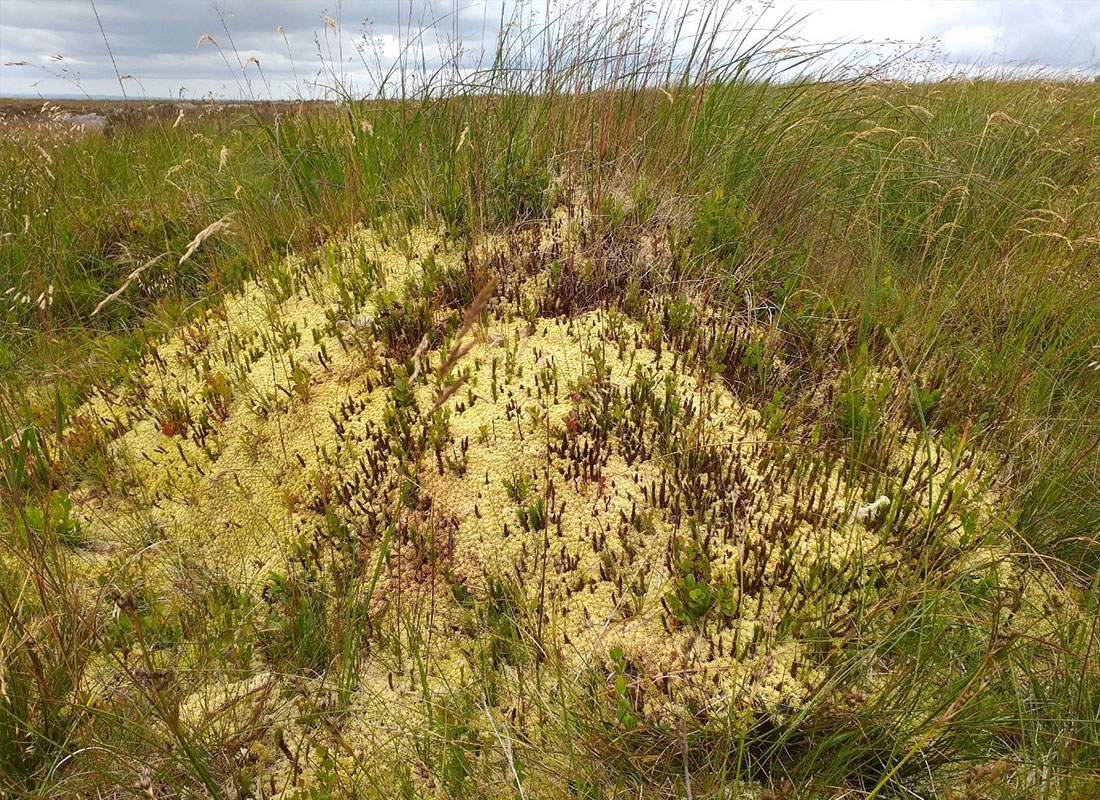Welsh Peatlands Evidence
Supporting the development of peatland policy, strategy and practice, and its delivery, in Wales
Peatland covers ~21% of Wales, of which >90,000 ha (~4.3%) is deep peat (>40cm) and estimated to store 196 Million tonnes of carbon3; however >75% are negatively impacted by one or more land-use activity and in their current condition are estimated to emit ~510 kt CO2e yr-1, mostly (58%) from peatland habitats converted to grassland.
Only if decisions on the future of these peatlands are based on up-to-date and reliable evidence, that is shared, understood and accepted by all peatland stakeholders will we be successful in cooperatively making decisions to deliver nature-based solutions for the competing demands of multifunctional peatland landscapes.
Dr Jonathan Walker introduces the project on YouTube
In this two-year research translation fellowship, I will work to ensure Welsh peatland policy, strategies and land management practices are informed by up to date and robust peatland science. Resultant peatland management decisions and schemes will be better accepted, endorsed, and more widely adopted by the land management community across Wales.
I will work closely with three evidence user groups:
1. Welsh Government (WG) and Natural Resources Wales (NRW) – to inform ongoing initiatives to update land use policy, strategies, action plans and operational practices
2. eNGOs, Protected Area staff and theincreasing number of peatland restoration and conservation projects that are delivering peatland restoration and sustainable management – to inform their peatland management policies, planning and delivery through sharing and communicating research translations, and synthesis, of the latest peatland research; as well as enabling them to be better engage and respond productively in WG/NRW peatland initiatives
3. Farmers and private landowners and managers with peatland interests – to provide access to understandable research evidence so that they can also confidently engage in WG/NRW peatland initiatives and consultations towards better coproduction and adoption of resultant schemes; and so they can make informed decisions about the management of their own peatland holdings.
In addition, the fellowship will benefit collaborating scientists by enabling them to engage with the ‘end-user’ community in Wales, and contribute to peatland policies, plans, strategies, and practice; develop new relationships and collaboration opportunities; and receive feedback from end-user groups to inform future research direction and focus.
This fellowship focuses on improving landscape decisions in Wales, but research translation materials, and lessons learnt, will be communicated, and shared with other UK countries for the wider benefit of peatland landscapes.
I will work with 15 peatland-relevant research projects that cover seven priority topics: tipping points, ecosystem resilience, biodiversity conservation, wildfire, flood risk reduction, remote sensing and mapping, and sustainable management.
The major work will an extensive programme of bespoke engagement and communication events (webinars, informal meetings, site visits and workshops) to directly contribute and exchange the available evidence the for the benefit of WG and NRW; eNGOs, protected areas; and farmers and land managers – these will be developed with the three end-user groups and researchers.
The main outputs will be series of research briefing notes that include infographics and animations, with key evidence translated into animations/ videos plus a synthesis of the 15 research projects to provide a unifying briefing document, again developed with project end-users and researchers.



Objectives
- Translate and contribute the latest research evidence, tools and resources, from different scientific disciplines, into appropriate formats to ensure WG and NRW initiatives to update land use policy, strategies, action plans and operational practices in Wales benefit from the latest peatland science.
- Address the priority evidence gaps identified to understand, assess, and deliver the sustainable management of natural resources in Wales identified in NRW’s State of Natural Resources interim report 20195
- Ensure Welsh peatland stakeholders (conservation NGOs, Protected Areas; private farmers and land managers) have access to, and understanding of, the latest peatland science, to:
- Provide feedback to scientists on the relevance and impact of their research evidence and outputs to Welsh peatland end-users. This will help ensure future research proposals and projects address the needs and priorities of (Welsh) peatland stakeholders
I will focus on seven priority peatland-relevant research topics and collaborate with 11 peatland researchers and 15 individual research projects (in brackets = (UKRI) funding):
Mapping peatland extent and condition:
- David Large, University of Nottingham – InSAR as a tool to evaluate peatland sensitivity to global change (Soil Security)
- David Large, University of Nottingham – Developing a statistical methodology for the assessment and management of peatland (Landscape Decisions)
- Ben Marchant, British Geological Survey – Issues of uncertainty and scale in derived products (Landscape Decisions)
Ecosystem Resilience:
- Martin Evans, University of Manchester – Towards a microbial process-based understanding of the resilience of UK peatland systems (UK Climate Resilience)
- Roxane Andersen, University of the Highlands and Islands – Developing a new understanding of blanket bog resilience – from molecules to landscapes (Leverhulme Research Leadership Award)
Biodiversity conservation, land-use and climate change:
- Richard Reeve, University of Glasgow – The interplay of land-use, climate and plant biodiversity on the UK stage (Landscape Decisions)
- Richard Reeve, University of Glasgow – Simulating UK plant biodiversity under climate change to aid landscape decision making (Landscape Decisions)
Peatland restoration and ecosystem service provision – Flood risk reduction:
- Martin Evans, University of Manchester – Optimising NFM in headwater catchments to protect downstream communities (Evans, Holden, Milledge; Directed (Research Programmes, Natural Flood Management)
Tipping Points in peatlands:
- Mark Reed, Newcastle University – Understanding ecosystem stocks and tipping points in UK blanket peatlands (Valuing Nature)
- Tim Lenton, University of Exeter – Identifying potential tipping points in the benefits derived from the UK’s land ecosystems (Valuing Nature)
Sustainable management: farming and paludiculture:
- Richard Lindsay, University of East London – Water Works project: field scale trials of wetland farming (paludiculture) (People’s Postcode Lottery Dream fund)
- Ann Bruce, University of Edinburgh – The role of livestock in food system resilience in remote, upland regions Resilience of the UK Food System in a Global Context (Global Food Security’s ‘Resilience of the UK Food System Programme’)
Wildfire – risk, impact, resilience and recovery:
- Roxane Andersen, University of the Highlands and Islands – How does land management influence fire resilience and carbon fate in blanket bogs? (Urgent Grant)
- Rebekka Artz, The James Hutton Institute – Drivers of greenhouse gas emissions during recovery from fire in peatlands undergoing restoration (Urgent Grant)
- Gareth Clay, University of Manchester – Toward a UK fire danger rating system: Understanding fuels, fire behaviour and impacts (CoPI Stefan Doerr, Swansea University)
